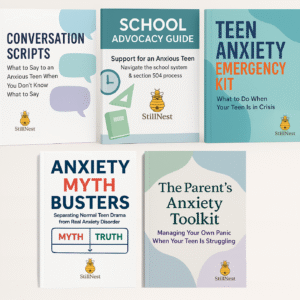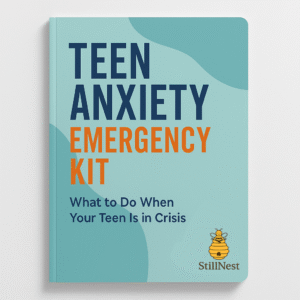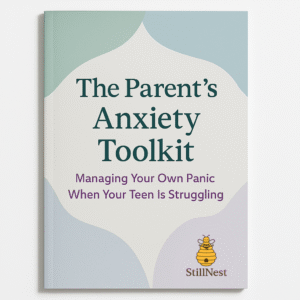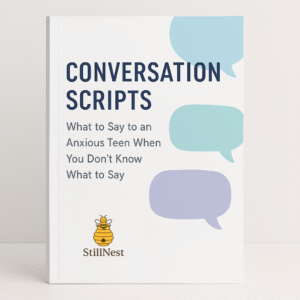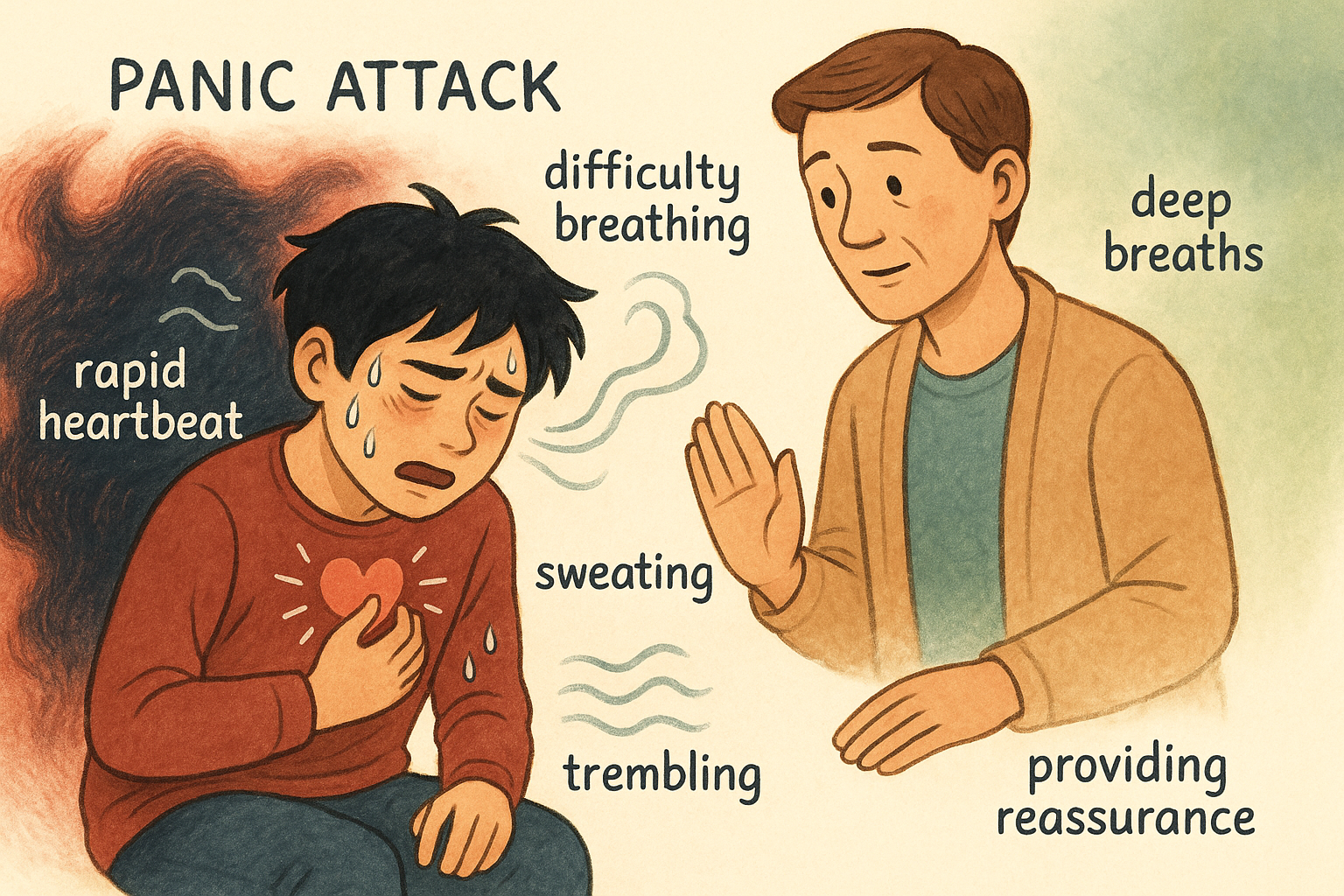Effective communication is one of the most powerful tools parents have for supporting their anxious teenagers. However, talking to teens about anxiety requires a delicate balance of being supportive without being overwhelming, and being helpful without being controlling. Learning the right communication strategies can strengthen your relationship with your teen and provide them with the support they need to manage their anxiety.
Understanding the Teen Perspective on Anxiety
Before addressing communication strategies, it’s important to understand how teens experience and view their anxiety. Teenagers often feel misunderstood, judged, or like their concerns are dismissed as “typical teen drama.” They may worry that talking about their anxiety will lead to restrictions, punishment, or unwanted interventions.
Common Teen Fears About Discussing Anxiety:
- Being seen as weak or unable to handle normal life
- Having parents overreact or become overly protective
- Being judged or criticized for their worries
- Losing independence or privileges
- Not being taken seriously or having feelings minimized
Creating a Safe Communication Environment
Choose the Right Time and Place: Avoid trying to have serious conversations when your teen is stressed, tired, or distracted. Look for natural opportunities when they seem more open, such as during car rides or walks.
Minimize Distractions: Put away phones, turn off the TV, and give your teen your full attention. This shows that you value what they have to say and are truly listening.
Use Open Body Language: Maintain an open posture, make appropriate eye contact, and avoid crossing your arms or appearing defensive.
Stay Calm and Regulated: Your teen will pick up on your emotional state. If you appear anxious or overwhelmed, they may shut down or become more anxious themselves.
Effective Communication Techniques
Active Listening:
- Listen to understand, not to immediately fix or solve problems
- Reflect back what you hear: “It sounds like you’re feeling overwhelmed by school”
- Ask clarifying questions: “Can you help me understand what that feels like for you?”
- Avoid interrupting or jumping to conclusions
Validation and Empathy:
- Acknowledge their feelings without trying to talk them out of it
- Use phrases like “That sounds really difficult” or “I can see why that would be scary”
- Avoid minimizing their concerns with phrases like “Don’t worry about it” or “You’re overreacting”
- Share your own experiences when appropriate, but don’t make it about you
Collaborative Problem-Solving:
- Ask what kind of support they need rather than assuming you know
- Involve them in finding solutions: “What do you think might help?”
- Offer options rather than dictating solutions
- Respect their autonomy while providing guidance
What to Say (and What Not to Say)
Helpful Phrases:
- “I’m here for you no matter what”
- “Thank you for trusting me with this”
- “What would be most helpful for you right now?”
- “It makes sense that you would feel this way”
- “Let’s figure this out together”
- “You’re not alone in this”
Phrases to Avoid:
- “Just calm down” or “Just relax”
- “Everyone gets nervous sometimes”
- “You have nothing to worry about”
- “When I was your age…”
- “You’re being too sensitive”
- “It’s all in your head”
Discussing Professional Help
Many teens resist the idea of therapy or counseling. Here’s how to approach this sensitive topic:
Normalize Mental Health Support: Explain that seeking help for mental health is similar to seeing a doctor for physical health issues.
Address Stigma: Acknowledge that there may be stigma around mental health treatment and discuss why these attitudes are unfair and outdated.
Emphasize Choice: When possible, involve your teen in choosing a therapist or treatment approach.
Focus on Benefits: Highlight how therapy can help them develop skills and feel better, rather than focusing on what’s “wrong” with them.
Supporting Daily Conversations
Check-ins Without Pressure: Regularly ask how they’re doing, but don’t pressure them to share if they’re not ready.
Notice and Acknowledge: When you see them struggling, acknowledge it: “I notice you seem stressed about tomorrow’s test. Is there anything I can do to help?”
Share Your Observations: “I’ve noticed you seem worried lately. I’m here if you want to talk about it.”
Respect Their Privacy: Allow them to have some private thoughts and feelings while making it clear you’re available when they’re ready.
Building Trust Over Time
Follow Through: If you promise to listen without judgment or to help in a certain way, make sure you follow through.
Respect Confidentiality: Don’t share what your teen tells you with others unless there’s a safety concern. Ask permission before discussing their situation with family members or friends.
Avoid Overreacting: When your teen shares something concerning, take a deep breath before responding. Overreactions can shut down future communication.
Be Patient: Building trust and open communication takes time, especially if your teen has felt misunderstood in the past.
Handling Crisis Situations
Sometimes teens may share thoughts of self-harm or suicide. Here’s how to respond:
Take It Seriously: Never dismiss threats of self-harm, even if you think they’re seeking attention.
Stay Calm: Your reaction will influence whether they continue to confide in you.
Ask Direct Questions: “Are you thinking about hurting yourself?” It’s okay to ask directly.
Get Professional Help: Contact a mental health professional, call a crisis hotline, or go to the emergency room if necessary.
Remove Means: Temporarily remove any potential means of self-harm from your home.
Ongoing Support Strategies
Model Healthy Communication: Demonstrate how to express emotions, ask for help, and handle stress in your own life.
Educate Yourself: Learn about anxiety disorders and treatment options so you can be an informed advocate for your teen.
Connect with Other Parents: Consider joining support groups for parents of teens with anxiety or mental health challenges.
Take Care of Yourself: Supporting an anxious teen can be stressful. Make sure you’re taking care of your own mental health needs.
When Communication Feels Stuck
If you’re struggling to communicate effectively with your anxious teen, consider:
Family Therapy: A therapist can help facilitate better communication and teach you both new skills.
Parent Coaching: Some therapists offer parent coaching to help you develop better strategies for supporting your teen.
Alternative Communication Methods: Some teens communicate better through writing, texting, or other non-verbal methods.
For expert guidance on supporting your anxious teen and improving family communication, visit StillNest Health. Our Parent Conversation Scripts to Calm an Anxious Teen Guide is aimed at helping families navigate teen anxiety and build stronger, more supportive communication. While communication strengthening takes time, if you need specific tips on how to manage teen anxiety in the crisis moment take a look at our Teen Anxiety Emergency Kit.
Remember, effective communication is a skill that improves with practice. Be patient with yourself and your teen as you work together to build better communication patterns. The effort you put in now will strengthen your relationship and provide your teen with invaluable support throughout their journey with anxiety.
Discover more resources for supporting anxious teens and improving family dynamics at StillNest Health.
Related Help Guide Downloads
-
Parent & Teen Anxiety Relief Guides – Complete 5 Guide Bundle
Original price was: $85.00.$47.00Current price is: $47.00. -
Teen Anxiety Emergency Kit – What to Do When Your Teen Is in Crisis | A step-by-step guide for parents & teens
Original price was: $27.00.$12.00Current price is: $12.00. -
The Parent’s Anxiety Toolkit – Managing Your Own Panic When Your Teen Is Struggling
Original price was: $27.00.$12.00Current price is: $12.00. -
Parent Conversation Scripts to Calm Teen Anxiety – What to say to an Anxious Teen
Original price was: $27.00.$12.00Current price is: $12.00.

